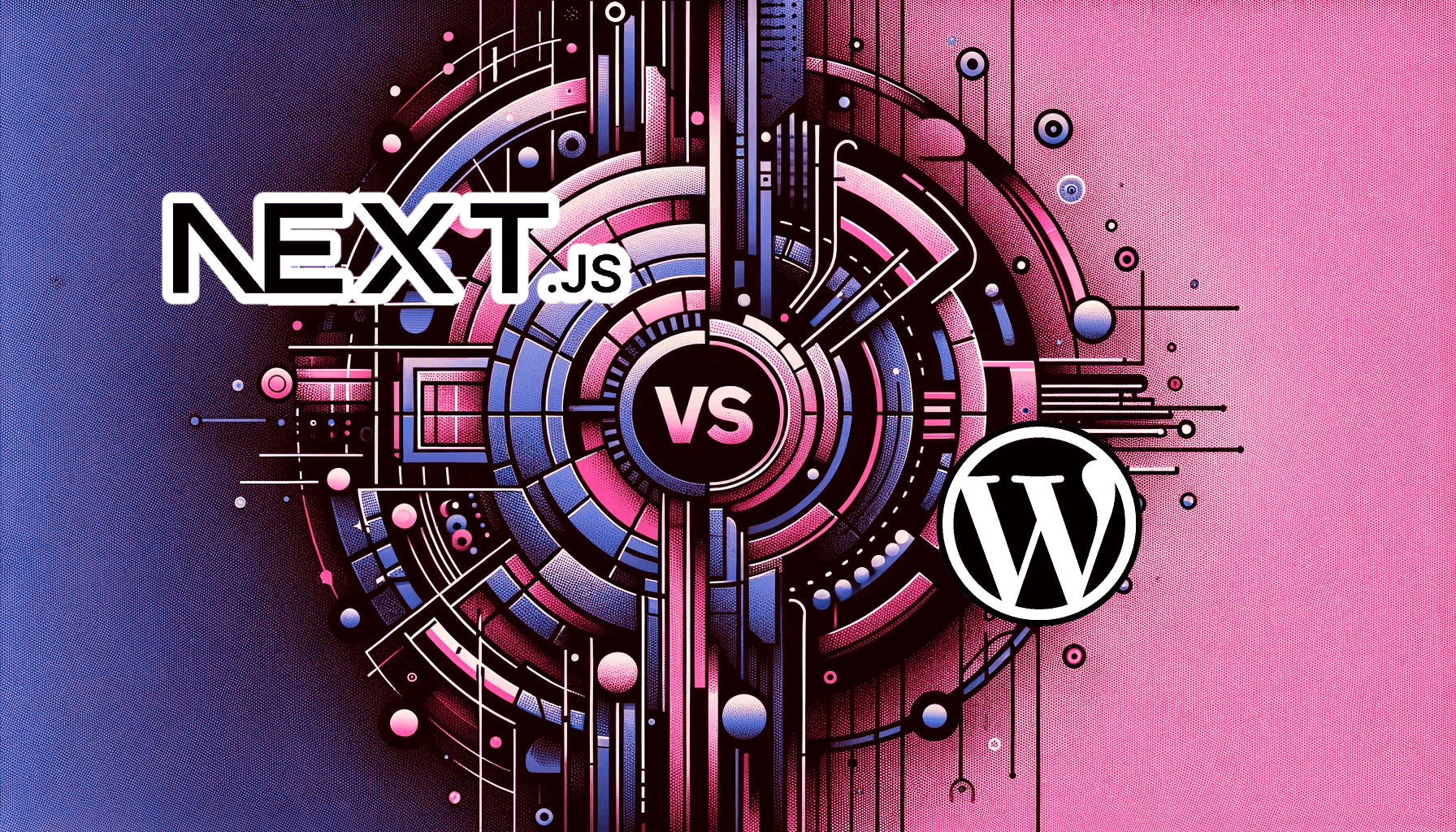< Back to blog
2024-01-08
Is Next.js Overtaking WordPress?

Introduction
Remember the 1979 hit "Video Killed the Radio Star"? It suggested that TV ended the era of radio (spoiler alert: it didn't!). In the web development world, I'm noticing a similar trend: SaaS companies and agencies are switching from WordPress (and other platforms like Wix or Webflow) to Next.js. But why? Let's explore.
Preface
Firstly, let's be clear: Next.js suits those who can code or have access to a web developer. It's not a simple plug-and-play solution like WordPress, but that's part of its unique appeal.
Ease of Use
I can almost hear your eyes rolling. "How can coding be easier than no-code platforms?" Surprisingly, it can be. With technologies like Chat-GPT, you can have a solid foundation for your website almost auto-generated. Combine that with various Next.js themes, starter projects, and the power of Tailwind for styling, and web development becomes more accessible than ever.
However, web builders often struggle with the limitations of WordPress or similar platforms. Take, for instance, the challenge of responsive design — ensuring your website looks good on any device. With traditional web builders, this can sometimes feel like a gymnastic feat, requiring various workarounds and compromises to get everything looking just right.
In contrast, with a coding approach, particularly in Next.js, such tasks are streamlined. Want to adjust your layout for different screen sizes? A few lines of code will suffice, and you're set. Here's an example that illustrates this simplicity:
{/* Tailwind made media queries for different screen sizes super easy */}
<div className="grid grid-cols-1 lg:grid-cols-2 xl:grid-cols-3">
{/* Place your cards here */}
</div>
Reusability
Imagine running a web development agency or a branding firm. A significant part of your job involves crafting similar components for various clients, where the primary difference is often just the design. This is where Next.js becomes a game-changer. It boasts a plethora of UI component libraries — like Chakra UI, Material UI, Ant Design, and my personal favorite, NextUI. These libraries offer a rich variety of pre-built components that you can adapt to fit your specific design needs.
But the real magic of Next.js lies in its ability to let you create your own unique components. This ability to customize and reuse components across different projects not only streamlines your workflow but also ensures consistent quality of work. Instead of reinventing the wheel for each client, you focus on innovatively assembling these reusable components.
Performance
When using static generation for webpages, ideal for many types of websites, you gain complete control over the final HTML output. This approach contrasts sharply with web builders, where the generated code can often be bloated, negatively impacting performance and leading to maintenance challenges. In the case of WordPress, the addition of each plugin has the potential to degrade performance, sometimes without your immediate awareness.
SEO
WordPress is renowned for its SEO capabilities, often enhanced through various plugins. However, Next.js offers a more hands-on approach to SEO, giving you greater control, especially considering the significant role of website speed and performance in SEO rankings.
Next.js essentially offers 'god mode' for SEO. But remember, with great power comes great responsibility. This level of control requires a deeper understanding of SEO. You might need to be familiar with aspects like meta tags, structured data, and how to optimize content for search engines. This is where tools like Next SEO come into play. Next SEO is a plugin designed for Next.js projects that simplifies managing SEO. It helps ensure that you don’t overlook crucial SEO elements.
Security
Security is also an important aspect, especially for larger companies. With Next.js, you're not limited to a specific hosting environment. Want to host on a highly secure cloud service? You can! This flexibility gives you an advantage in keeping your site secure and robust.
Conclusion
So, is radio dead? Not at all. Just as radio persisted, website builders will continue to thrive. Web development has simply become more accessible and professional, making it a preferred choice for those who can code or afford a programmer. It's increasingly seen as the go-to option for serious businesses.
Yet, WordPress and other website builders will continue to flourish in their own right.
Next.js offers enhanced flexibility, reusability, performance, SEO capabilities, and security. While these benefits might not be immediately evident, they often lead to significant advantages in the long run.
In my personal opinion, Next.js is definitely the more professional choice.
Do you agree? disagree? What does the future hold?
Let me know at shimon@maplecms.ai.
Happy coding!